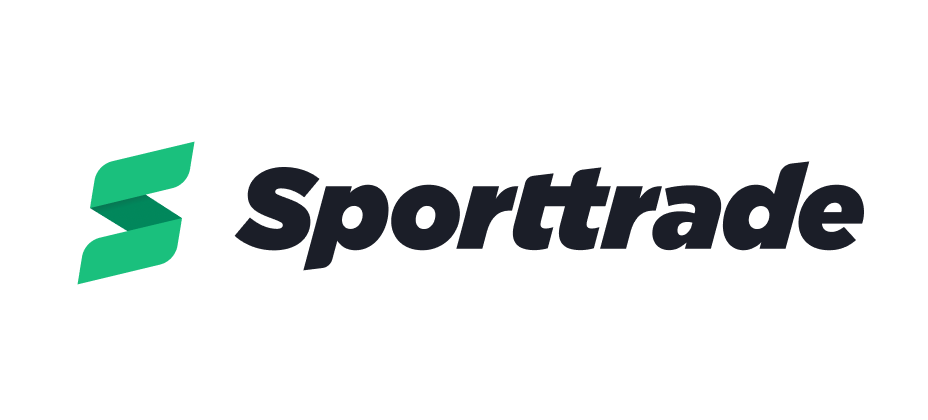Not Part Of The Plan
California Tribes are moving forward with their sports betting plans, which doesn't include a significant contribution from commercial operators.
The Bulletin Board
NEWS: California tribes have a plan for sports betting, and commercial operators are, at best, only a tiny piece of the pie.
LOOSE ENDS: NCLGS “Model Legislation”; MLB Commish on federal action; NCPG launches Tribal Advisory Council.
NEWS: Members of an Ohio Commission have recommended legalizing online gambling, but stakeholders are divided.
BEYOND the HEADLINE: Could Ohio go poker-only?
NEWS: Mobile betting is back in DC, with three operators up and running.
AROUND the WATERCOOLER: Poker sites are not licenses to print money.
STRAY THOUGHTS: This week’s podcast.
SPONSOR’S MESSAGE - Sporttrade was borne out of the belief that the golden age of sports betting has yet to come. Combining proprietary technology, thoughtful design, and capital markets expertise, our platform endeavors to modernize sports betting for a more equitable, responsible, and accessible future.
Sporttrade’s newest feature, The Tape, prints all trades made on the app in real-time.
Tribes Have a Plan for California Sports Betting
The clock is ticking for the commercial gambling industry. California tribes plan to begin their sports betting push (retail-only to start) in 2026, which gives commercial operators a little more than a year to mend the fences they helped tear down in 2022.
Commercial operators tried to strongarm their way into California through a 2022 ballot initiative. The ensuing stunning, historic defeat (the initiative received 17% support on the November 2022 ballot) didn’t just hit the pause button on sports betting; it was a full factory reset.
California tribes have since posted their No Trespassing signs, and the national commercial operators seem to be abiding by the request. They’ve embarked on an apology tour and hired a cadre of tribal gaming experts to help mend fences.
However, tribes have been very explicit in how they will advance sports betting in the state, which will be 100% on tribal terms. The current plan, relayed by Pechanga.net publisher and Indian Gaming Association Conference Chair Victor Rocha, is retail in 2026 and, if all goes well, online in 2028.
When is interesting, but the how is the more important bit. And again, that will be on tribal terms.
“After creating these land-based entities, why would we allow our online presence to be eclipsed by FanDuel and DraftKings?” Rocha said on my podcast in May. “There are other white-label companies that will come in and fill the spot if those guys don’t want to play.”
Or, as Morongo Band of Mission Indians Vice Chairman James Siva said at the Indian Gaming Association Conference in April [bold mine], “It’s about defending and protecting everything we’ve built. The expansion of gaming is going to happen. It’s a matter of when, not where. But when that does happen, tribes will remain in control in California. We’ll partner with companies, we’ll utilize their products, but again, tribes are the operators in California.”
The question is, can commercial operators repair their relationship with California tribes by 2028 enough to get some of the crumbs, or will they be wholly shut out of the market?
Loose Ends: NCLGS “Model Legislation”; MLB Commish on Federal Action; NCPG Launches Tribal Advisory Council
NCLGS Summer Meeting will emphasize “model” online casino legislation: The NCLGS summer conference kicks off today in Pittsburgh, and one of the most significant policy discussions will be the organization’s efforts to craft model online casino legislation. No less than three panels are dedicated to discussing the topic (not finalizing) the details. “What we plan to do at the conference is provide an overview of the top-line issues we’re working on for the model legislation,” NCLGS President Shawn Fluharty told PlayUSA. Fluharty expects a finalized version to be ready in the fall or winter.
MLB Commish poo-poos federal oversight: MLB Commissioner Rob Manfred doesn’t expect federal oversight of sports betting. “I think there is a lot of emphasis on states’ rights right now and the idea the federal government would step in and deprive states of an important source of revenue,” Manfred told the Dallas Morning News. “I just politically don’t see that happening.” It’s an interesting statement, and while federal action is not around the corner, I would not dismiss some type of federal action out of hand.
NCPG launches Tribal Advisory Council: The National Council on Problem Gambling has announced a new Tribal Advisory Council with a primary goal of raising awareness for native American cultures in relation to gambling, with a focus on responsible and problem gambling.
The founding members of the Council are:
Raquel Buari, J.D., Executive Vice President, Four Winds Casinos
Jacob Coin, Executive Advisor, San Manuel Tribal Council, San Manuel Band of Mission Indians
Shannon Dictson, Mescalero Responsible Gaming Program & President, Responsible Gaming Association of New Mexico
Anika Howard, Mashantucket Pequot Tribal Nation and CEO of Wondr Nation
Maria Lopez, Executive Director, Pascua Yaqui Tribal Gaming Office
Matthew Morgan, Chairman, Oklahoma Indian Gaming Association
Ray Pineault, J.D., President and CEO, Mohegan
James Siva, Chairman, California Nations Indian Gaming Association
Housekeeping: Following up on the news that Walmart is increasingly interested in the lottery, the company issued a statement to Lottery Geeks saying, “Walmart has no plans to develop a lottery app.” That doesn’t tell us much, so I’ll reiterate my comments from Monday: “The answer may not be in the article, but the coverage and the comments from the sources cited seem to indicate that the plan is related to online sales in some way and possibly in new, unique ways.”
SPONSOR’S MESSAGE - SUBSCRIBE NOW to Zero Latency, the new podcast from Eilers & Krejcik Gaming that provides unparalleled insight into the U.S. online gambling industry through interviews with industry insiders and analysis from EKG experts.
Ohio Stakeholders Divided on Online Casinos
The Study Commission on the Future of Gaming in Ohio has submitted a 350-page report that tepidly endorses online casinos and online lottery.
“Any implementation of iGaming must not come at a cost to these entities [casinos and VLTs],” a letter from three commission members (all state representatives), Jay Edwards, Jeff LaRe, and Cindy Abrams, said. “While the state should proceed with caution and care with any expansion of this magnitude, with the right regulatory framework, these types of gaming can thrive with nominal impact to our current system.”
The Commission held four meetings earlier this year on a variety of topics related to gambling. The report contains “testimony presented to the Study Commission and letters submitted by several members detailing their takeaways, points of view, or recommendations moving forward.”
In their recommendations for online casinos and lottery, the trio of commissioners noted that despite opposition from some brick-and-mortar operators and lottery retailers, “we believe that iLottery and iGaming could be a net benefit to the state of Ohio.”
“Looking at other states who have implemented either or both iLottery and iGaming, we see significant increases to tax revenues generated with greater participation but also that in-person sales continued to increase.”
Edwards, LaRae, and Abrams suggested that the rise in in-person sales is due to online lottery sales expanding the player pool, with “more people participating in the market on their phones and becoming more comfortable/knowledgeable about doing it at a physical location.”
They went on to note that Pennsylvania has seen retail sales increase by 20% since online lottery products launched in 2018. Kentucky, which launched iLottery in 2017, has seen an even more dramatic rise, with retail sales growing 56%.
The Commission did caution that legalization wouldn’t be all sunshine and puppy dogs:
“Allowing iGaming would have an impact on the current casinos and VLT’s that exist throughout this state. These businesses employ thousands of Ohioans, pay huge amounts of taxes, have invested substantial amounts of their personal capital into these venues and equipment, and have a large philanthropic arm that reaches almost every locality in the state.”
Now, to the important part. On the pro side are the usual suspects, including online lobby groups and major online operators. On the no side is a formidable presence in Ohio, JACK Entertainment.
“It is unequivocally clear that iGaming can only be conducted by the four licensed casinos in Ohio,” Daniel Reinhard, Senior Vice President of Government Affairs for JACK Entertainment, wrote to the Commission.
“Second, iGaming is a threat to Ohio businesses and Ohio employment,” Reinhardt said. “No matter what study is presented, online consumption eats away and eventually devours retail businesses through diminishing dollars for the local economy.”
He then mentions two reports pointing to land-based cannibalization, The Innovation Group and Deutsche Bank reports.
“iGaming as presented to this Commission will not bolster Ohio’s gaming climate or benefit Ohioans… Ohioans can observe their local malls to understand the impact that iGaming will have on local economies. Just like online retail has decimated local retail, iGaming will do the same under any logical scenario.”
“iGaming will damage Ohio businesses and cost Ohio jobs leading to diminished capital investment and degradation of Ohio’s existing tax base.”
Beyond the Headline: Could Ohio Go Poker-Only?
As Pokerfuse.com reported, there is an intriguing possibility (dare I say exciting, if you’re an online poker player) that Ohio could bypass most of the cannibalization talks by taking a poker-only to online gambling.
“The state could implement a limited pilot program and gauge its impact on Ohio’s market compared to neighboring states,” Rep. Bride Rose Sweeney, one of the committee members, wrote in a letter included in the report. “The state could legalize only one type of igaming, such as online poker, to test the waters while still chipping away at the illicit market.”
Online poker-only is definitely a long shot, given poker’s “structural issues” (lack of tax revenue). Still, the numerous paths forward offered in the report provide some hope that there is an alternative route that will get us around the current legislative gridlock facing online gambling.
Three Mobile Sportsbooks Go Live in DC
The problem has been resolved in DC. After a day without mobile betting, FanDuel, along with BetMGM and Caesars, have relaunched or launched their mobile betting apps in DC.
As Sports Betting Dime’s Robert Linnehan reported:
“Following a green light from the Washington Office of Lottery and Gaming (OLG), FanDuel, BetMGM, and Caesars Sportsbook are now able to offer online sports betting throughout Washington, D.C.”
More interesting than the launches of BetMGM and Caesars, or the speedy return of FanDuel, is the absence of DraftKings, which teased out a launch on Tuesday. As Sam McQuillan tweeted, “DC’s Office of Lottery and Gaming did not mention DraftKings in its list of approved operators to launch online sports betting today. So, interesting that DraftKings would tweet this out, yesterday.”
Sponsors Message: Kero is a premier micro-betting provider, powering more than 150 operators across the globe.
Our extensive coverage of fast markets in Football, Basketball, Baseball, and Soccer is a proven method for increasing in-play handle and hold.
Talk to us about how we utilize algorithmic recommendation to power highly contextual micro markets for the ultimate in-play experience.
Around the Watercooler
Social media conversations, rumors, and gossip.
Speaking of poker, there is a very interesting but flying-under-the-radar documentary series by poker-crusher Phil Galfond that explains how hard it is to operate an online poker site:
You can watch Episode 2, which covers Run It Once Poker, here:
Stray Thoughts
My latest podcast, with recent WSOP bracelet winner Mark Checkwicz ($5,000 Seniors Event), will be available tomorrow.
As I mentioned in the episode description:
“This was a reflective conversation with a player who admittedly struggles to control their gambling impulses. You’ll learn about Mark’s formative years and growing up around gambling, followed by his highs and lows and eventual realizations about gambling.”
If you’d like early access to these podcast episodes, you can upgrade to a paid subscription (just click the button below), which will also give you a bonus feature column every Friday.







